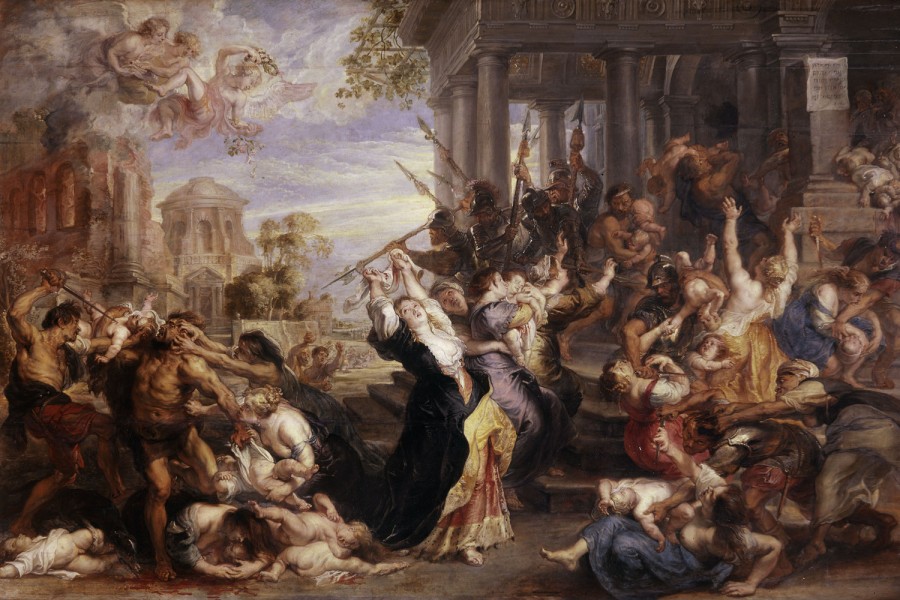In the 17th century, the Flemish Baroque painter Peter Paul Rubens painted “The Massacre of the Innocents” (see below), an artistic depiction of a very brief Biblical passage in The Gospel of Matthew. The passage recounts the story of how Herod the Great, a Roman client king of Judea, ordered the execution of young male children in Bethlehem, hoping to avoid losing his throne to a newly-born King of the Jews. And it reads like this:
Then Herod, when he saw that he was deceived by the wise men, was exceedingly angry; and he sent forth and put to death all the male children who were in Bethlehem and in all its districts, from two years old and under, according to the time which he had determined from the wise men. Then was fulfilled what was spoken by Jeremiah the prophet, saying:
“A voice was heard in Ramah,
Lamentation, weeping, and great mourning,
Rachel weeping for her children,
Refusing to be comforted,
Because they are no more.”
In the 21st century, Sebastian Burdon and Mat Collishaw have now come along and created “All Things Fall,” a 3d zoetrope that brings the “Massacre of the Innocents” to life. Using a 19th century optical technique that produces the illusion of motion, the zoetrope virtually animates the gruesome Biblical scene. You can watch it play out, eerily, above.
According to Burdon, it took “6 months to do all the 3d modeling and animations” and involved “creating over 350 character figures, environment elements and architecture. A pretty stunning effort.
Related Content:
Download Over 250 Free Art Books From the Getty Museum
Watch Art on Ancient Greek Vases Come to Life with 21st Century Animation
5‑Minute Animation Maps 2,600 Years of Western Cultural History



The horror and the beauty — amazing!